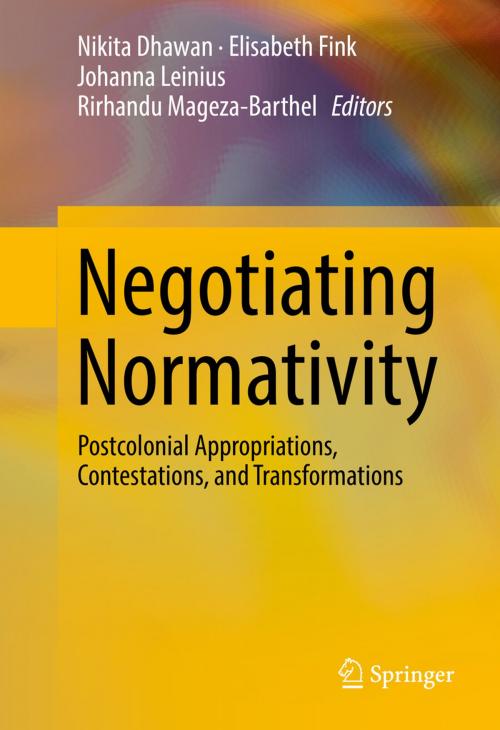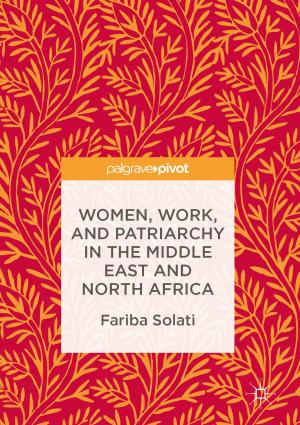Negotiating Normativity
Nonfiction, Social & Cultural Studies, Political Science, International, International Relations, Politics, History & Theory| Author: | ISBN: | 9783319309842 | |
| Publisher: | Springer International Publishing | Publication: | July 1, 2016 |
| Imprint: | Springer | Language: | English |
| Author: | |
| ISBN: | 9783319309842 |
| Publisher: | Springer International Publishing |
| Publication: | July 1, 2016 |
| Imprint: | Springer |
| Language: | English |
This volume presents the critical perspectives of feminists, critical race theorists, and queer and postcolonial theorists who question the adoption of European norms in the postcolonial world and whether such norms are enabling for disenfranchised communities or if they simply reinforce relations of domination and exploitation. It examines how postcolonial interventions alter the study of politics and society both in the postcolony and in Euro-America, as well as of the power relations between them. Challenging conventional understandings of international politics, this volume pushes the boundaries of the social sciences by engaging with alternative critical approaches and innovatively and provocatively addressing previously disregarded aspects of international politics. The fourteen contributions in this volume focus on the silencing and exclusion of vulnerable groups from claims of freedom, equality and rights, while highlighting postcolonial-queer-feminist struggles for transnational justice, radical democracy and decolonization, drawing on in-depth empirically-informed analyses of processes and struggles in Asia, Africa, Europe and Latin America. They address political and social topics including global governance and development politics; neo-colonialism, international aid and empire; resistance, decolonization and the Arab Spring; civil society and social movement struggles; international law, democratization and subalternity; body politics and green imperialism. By drawing on other disciplines in the social sciences and humanities, this book both enriches and expands the discipline of political science and international relations. Primary readership for this volume will be academics and students concerned with globalization studies, postcolonial theory, gender studies, and international relations, as well as political activists and policy-makers concerned with social and transnational justice, human rights, democracy, gender justice and women’s rights.
This volume presents the critical perspectives of feminists, critical race theorists, and queer and postcolonial theorists who question the adoption of European norms in the postcolonial world and whether such norms are enabling for disenfranchised communities or if they simply reinforce relations of domination and exploitation. It examines how postcolonial interventions alter the study of politics and society both in the postcolony and in Euro-America, as well as of the power relations between them. Challenging conventional understandings of international politics, this volume pushes the boundaries of the social sciences by engaging with alternative critical approaches and innovatively and provocatively addressing previously disregarded aspects of international politics. The fourteen contributions in this volume focus on the silencing and exclusion of vulnerable groups from claims of freedom, equality and rights, while highlighting postcolonial-queer-feminist struggles for transnational justice, radical democracy and decolonization, drawing on in-depth empirically-informed analyses of processes and struggles in Asia, Africa, Europe and Latin America. They address political and social topics including global governance and development politics; neo-colonialism, international aid and empire; resistance, decolonization and the Arab Spring; civil society and social movement struggles; international law, democratization and subalternity; body politics and green imperialism. By drawing on other disciplines in the social sciences and humanities, this book both enriches and expands the discipline of political science and international relations. Primary readership for this volume will be academics and students concerned with globalization studies, postcolonial theory, gender studies, and international relations, as well as political activists and policy-makers concerned with social and transnational justice, human rights, democracy, gender justice and women’s rights.















